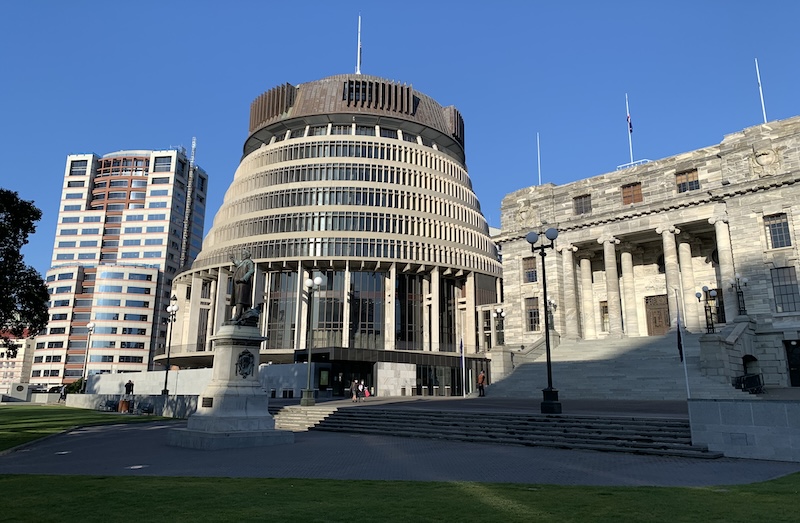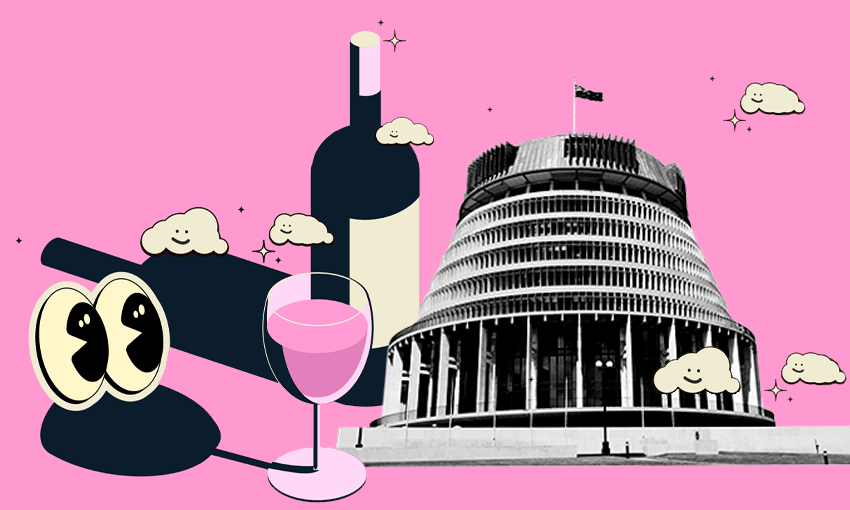Environmentalist and Māori rights activist Mike Smith is fighting to have his day in court against seven large fossil fuel users and suppliers.
Last year, the Court of Appeal dismissed Smith’s claim that the ‘Polluting 7’ are breaching well-established common law principles by contributing to climate change. Smith (Ngāpuhi and Ngāti Kahu) wants to convince the Supreme Court to allow him to proceed to a full hearing, with expert evidence and witnesses.
Ultimately, Smith wants the court to grant an injunction forcing the companies to reduce their polluting activities.
The defendants – coal miner BT Mining, oil importer Channel Infrastructure, farming company Dairy Holdings, dairy giant Fonterra (which burns coal to dry milk), energy company Genesis (which burns coal and gas to create electricity), NZ Steel (which also burns coal) and petrol and diesel retailer Z Energy – all dispute Smith’s claims.
READ MORE:
* Students sue Government for letting companies search for fossil fuels
* Climate case against ‘Polluting 7’ corporates thrown out
* Fonterra, Genesis Energy and Z will go to trial for ‘failing’ to protect against effects of climate change
The seven companies represent about a third of New Zealand’s annual emissions. The businesses will defend their actions from Tuesday.
In the Court of Appeal case, the companies noted they were operating within statutory and regulatory requirements.
Smith was represented by Davey Salmon QC, Natalie Coates and David Bullock. The team argued the seven companies have an obligation to Smith under common law protections against public nuisance and negligence. The companies’ actions are causing harm to Smith, his property and his community, they assert.
This week, in front of five justices of the Supreme Court, Smith’s legal team is arguing that established common law principles apply to climate change.
David White/Stuff
Mike Smith (Ngāpuhi and Ngāti Kahu) is the climate spokesperson for the Iwi Chairs Forum group.
Representing Smith, Coates said that tikanga must be considered. The customs and principles govern the environment and human behaviour that affects the environment. “Tikanga clearly has something to say,” she argued.
Unlike common law, tikanga doesn’t need to draw a line between the party causing harm and the injured party, Coates argued. The practice of rāhui – where access to an area or resource is limited to restore balance – showed tikanga is focused on pragmatic responses.
Because of this, Coates argued the court should have showed caution before striking out Smith’s claims about negligence and public nuisance.
Bullock also addressed the other courts’ reasons for dismissing the claims, using the precedent of old cases.
The public has the right to live in a safe, habitable climate, he argued. Without that, other rights cannot be exercised.
In the past, courts have granted suspended injunctions, which offers a party time to prepare for the new order. If the court eventually found in favour of Smith’s claim, it might decide that a suspended injunction was a suitable remedy, Bullock said.
Salmon said the companies named in the suit were “bottlenecks” and “conduits”. If these companies ceased their high-emitting activities, downstream emissions would fall, he argued.
Justice John Kós asked whether consumers were ultimately to blame for emissions.
Salmon said consumers were “locked in a cycle of fossil fuel dependence”. Large emitters (including those overseas) had denied and minimised climate change, lobbied against regulations, greenwashed and run campaigns to convince consumers that individuals are to blame.
In addition, the Government had failed to take effective action, Salmon said. It therefore fell to the court to protect the rights of Smith and his community. However, courts were well-placed to make evidence-based decisions, he said.
Climate change, if warming was not held below 2C, could “upend the world”. Everyone – including the seven big emitters – would be better off if they rapidly transitioned away from polluting activities, Salmon argued.





















Discussion about this post